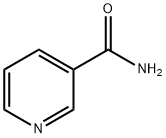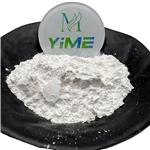Vitamin B3 is a water-soluble vitamin. It is not stored in the body. Water-soluble vitamins dissolve in water. Leftover amounts of the vitamin leave the body through the urine. The body keeps a small reserve of these vitamins, but they have to be taken on a regular basis to maintain the reserve. It can help you improve your cholesterol numbers. This can help lower your risk of cardiovascular disease.
Vitamin B3 helps the digestive system, skin, and nerves to function. Vitamin B3 plays an important role in maintaining the health of your heart, blood vessels, and metabolism. It may also be used with other medications to decrease bad cholesterol and fats (such as LDL, triglycerides) and increase good cholesterol (HDL) in your blood.
Vitamin B3 is a pyridinemonocarboxylic acid that is pyridine in which the hydrogen at position 3 is replaced by a carboxy group. It has a role as an antidote, an antilipemic drug, a vasodilator agent, a metabolite, an EC 3.5.1.19 (nicotinamidase) inhibitor, an Escherichia coli metabolite, a mouse metabolite, a human urinary metabolite and a plant metabolite. It is a vitamin B3, a pyridinemonocarboxylic acid and a pyridine alkaloid. It is a conjugate acid of a nicotinate.
A common side effect of Vitamin B3 is a flushing reaction. This might cause burning, itching, and redness of the face, arms, and chest, as well as headaches. Starting with small doses and taking 325 mg of aspirin before each dose of niacin may help. This reaction usually goes away as the body gets used to niacin.


